A recent CNET article on search engines triggered a trip down memory lane. In the late 90’s it was the wild west when it came to search engines. They were everywhere, with new ones popping up left and right. None of them dominated like Google today. And that’s what made it interesting.
In 1998, I was running a marketing team for Nortel. We were marketing ATM networks, or “convergence” as we called it then. It was simply a way for a company to save money by combining all of their network equipment (voice, video and data) onto one super-duper, fiber-optic Nortel switch. Then came the call from Cisco in San Jose, and after pinpointing the city on a map (oh, it’s near San Francisco!), I decided to relocate and join what was then one of the hottest companies on the planet.
Cisco.com and the 85% Goal
It’s was at Cisco in the late 90’s where I was deluged by leading edge technology and jargon. My organization was responsible for managing Cisco.com and the goal of driving 85% revenue through the web site. At the time, a unique proposition.
In-house search engines were a big deal. They allowed customers to find support information for their networking gear, locate products to buy, and navigate Cisco’s enormous array of educational, services and other offerings.
Making Money: The “Secret” Sauce?
Viewing the CNET slideshow on old search engines I couldn’t help but think that the first Larry Page and Sergey Brin were already out there. But why didn’t any of these early pioneers hit the big time? After all, the technology was decent and, in some cases, even the brands were well recognized at the time.
As I thought about this, I was once again reminded of the old addage that while technology is of course essential, nothing beats a good old business model that makes money.
Enter advertising. A billion dollar playground that the Google guys figured out how to ‘link’ to through the brilliant invention of Adwords. That napkin idea turned out to be the IPO worthy of a $500 stock, and a $100B+ market capitalization.
David vs. Goliath
Now there’s a new kind on the block, Cuil (pronounced ‘cool’), founded by some former Google employees. It’s well done, and different in that they promote their protection of privacy. They don’t mine user data or do advertising. Sounds to me like they won’t survive long. But I’ve been wrong before. I do like their interface and search results screen. You can check it out here.
Search and advertising is now at the heart of a battle for the ages between Microsoft and Google, with Yahoo the dreamy-eyed stepchild soon to have a new home.
So back to the CNET article. There are a few search engines they missed, that I recall well. So I’ve added two more screen shots here for those who enjoy a tech walk down memory lane Silicon Valley-style. (note: these screen shots are all from the “Wayback” internet archive, a useful way to check the history of web sites).
Searching For China
Looking back on search is like dusting off old photos; it’s fun for a while, but then you want to look ahead. And in this market, I have to think China and others emerging economies will weigh in. Baidu.com is the Google of China. An amazing success story, and the first Chinese stock to be included in the Nasdaq 100.
It’s hard to believe the mainstream Internet as we know it today is only about 14 years old. Search technology has played an important role, and will no doubt continue to in the decades ahead.
Resources:
- CNET: “Dinosaur sightings: Old search engines”
- CNET: “Dot-com pioneers–where are they now?”
- Wikipedia: List of search engines
- Wikipedia: Web search engine (with historical timeline)
- Cuil search engine: www.cuil.com
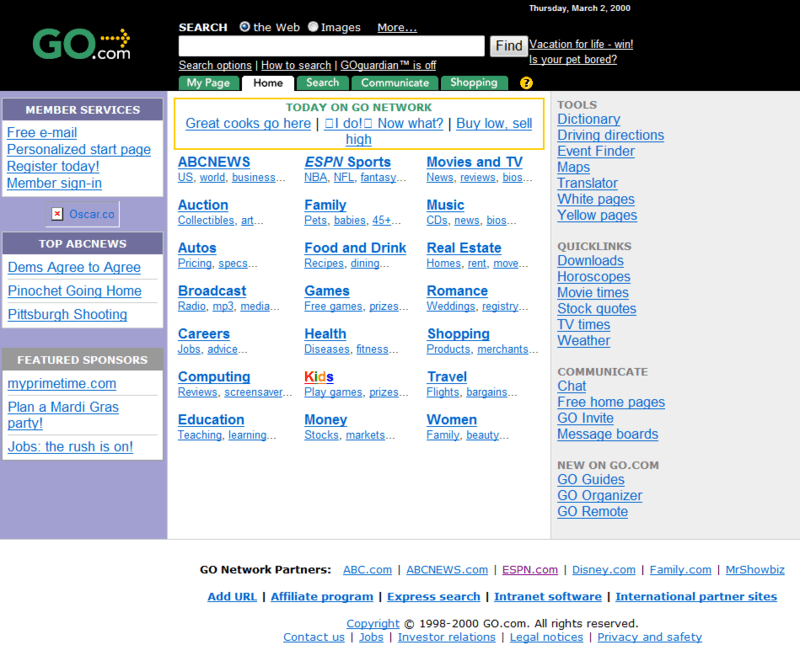
This was GO.com circa 2000. It was a Disney venture with primary content from ABC and ESPN. The homepage is a directory format, a trend started by Yahoo in the mid-90s.
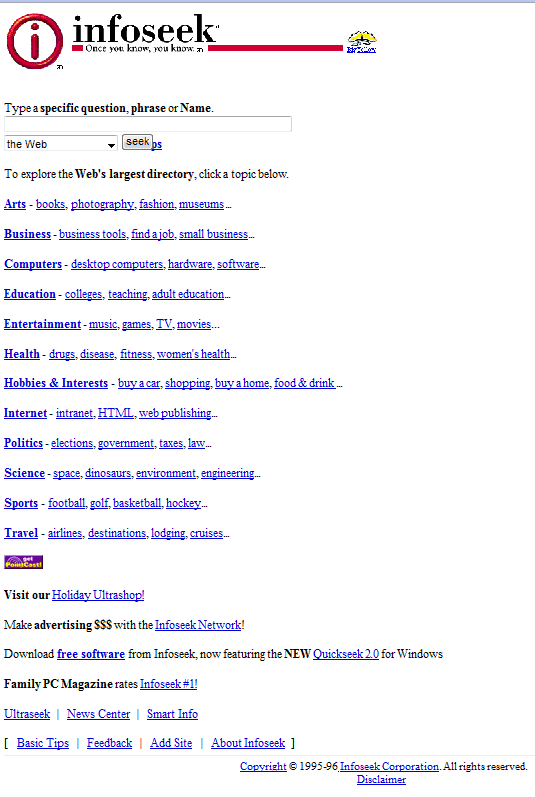
InfoSeek: what happened? Screen shot from 1996, not long after the first web browser, Netscape, was born. They could have had it all. Notice at bottom, the comment related to making money from advertising on the “InfoSeek Network”. A light bulb went off in some kids head, who then went to Stanford, built a super-computer search, and the rest is history…
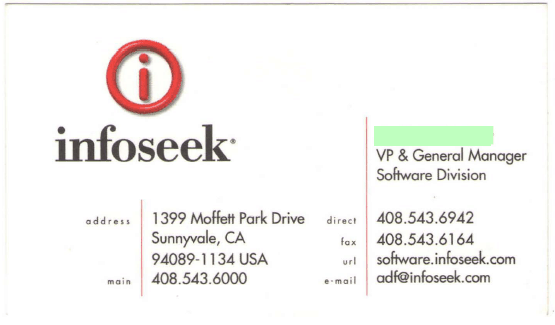
Infoseek was well known at the time.
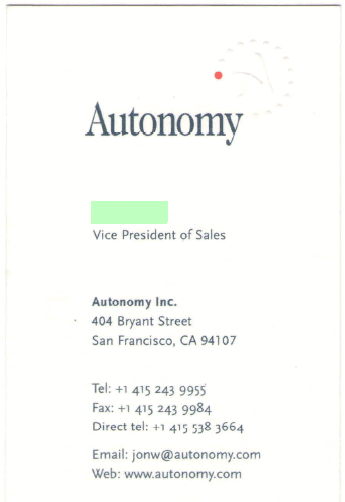
Autonomy specialized in “fuzzy logic”.
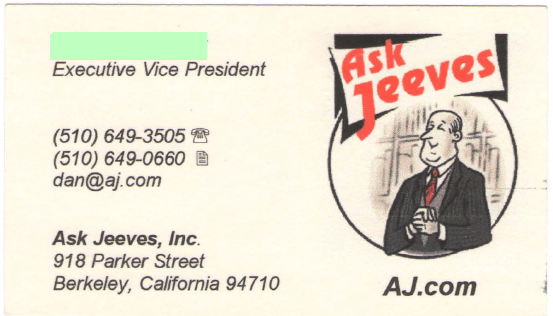
Before Ask.com there was AskJeeves.com. They allowed you to type complete questions rather than just keyword searches.


